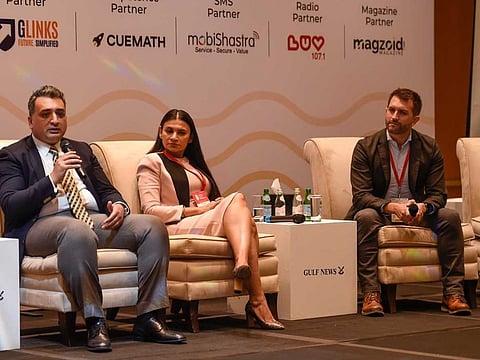GN Edufair: Embracing continuous learning is critical to success
Strengthen industry-academia partnership to improve learning outcomes, GN Edufair hears

The future of industry is constantly evolving, and academia-industry partnerships need to prepare graduates to keep their finger on the pulse, and think creatively and innovatively. That was the consensus between the experts at the panel discussion titled “Strengthen academia-industry partnerships for the future of work” at the Gulf News Edufair 2023 on Saturday.
“We offer extra courses and workshops in addition to the curriculum they are studying, enabled by industry partners such as Dell, Oracle, Cisco, IBM,” said Dr. Fehmida Hussain, Associate Professor, School of Science and Technology, Founder and head of the Centre of Science and Technology, Middlesex University Dubai. “So our IT students, right from the first year onwards, look at different career pathways identified by the partnerships we have in the industry.”
But she cautioned that is merely a starting point for the partnership between industry and academia given how rapidly technology and society is changing today. “We don’t know what we’re preparing graduates for – we just know they need to be lifelong learners.”
“Lifelong learners” was the theme of the day. “Our graduates are going to change industry. They’re going to be leaders of industry,” said Prof. Tadhg O'Donovan, Deputy Vice Principal, Heriot-Watt University Dubai. “Jobs are going to be different in five years. University graduates should be able to adopt, adapt, survive and thrive in a changing environment.”
Naveed Ejaz, Outreach and Admission Advisor, Zayed University agreed. “Today employers focus a lot more on the ability to think critically and creatively,” he said. “We’re going through a transformation, focusing on active learning, moving away from traditional educational systems.” He gave the example of ‘problem fairs’ where students pick a problem from a real-world industry partner, and work on solving it as part of ‘partner challenges’.
“By the time students graduate, 80 per cent of roles they’ll be facing haven’t even been invented yet,” he said. “We need to make sure they have the transformational skills they need.”


